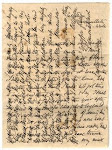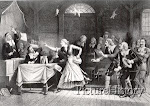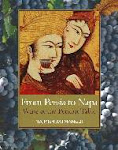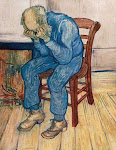‘remember: work quickly, keep on going, faster than laziness’
notes Duras somewhere in her writer’s diaries. I like this idea of ‘laziness’ being like a rival dogging your feet, you have to keep ahead of it, keep writing at a pace or risk falling behind and that eternal laziness will lope on past you and win the day.
But for some reason I find myself making excuses and shying away from a post to sum up my reaction to Djavann’s ‘demi-roman’ or half-novel. ‘Comment peut-on devenir français?’ Here’s what I’ve done in the last two days instead; watched films, gone shopping at the January sales, experimented a curry recipe, played umpteen ‘Happy Families’ with my younger daughter, drunk litres of coffee with partner ever ready to chat, changed books at the mediatheque...the list is endless.
My reticence to read is not as much out of laziness as dread of confronting yet again, – even at on the second-hand level of reading - all those old sterotyped ideas on the effort of that journey from one community and identity to another.
Not to mention all the energy expended and inner debate that goes along with making that crossing as carefully as possible so as not to lose too much on the way.
In ‘Comment peut-on devenir Français?’ the student heroine Roxanne, spends two years wrestling with and cajoling the French language with dictionaries, notebooks, classes at the Alliance Française and Cours de civilisation at the Sorbonne, and all the emotional powers in her possession. It isn’t until the very end of the novel that we understand her terrible Kafkaesque solitude is not because of swopping her native Persian culture andt language for French but because of a trauma lived out in Iran before she fled the country. I won’t say here what happened to her. People read for the story and despite the depressiveness it gives off, this is a book out of all those around today, that’s worth reading, a book I would hope will be read by as many people as possible. Certainly by my own daughters...(though in parenthesis – what daughter eagerly reads the books her mother wants her to read? The secret with my elder daughter is to say nothing and leave the book lying around for her to graze on and then devour if she feels like it. Plus I have to add that she declares herself allergic to books dealing with the harder side of life.
Sunday, February 1
Subscribe to:
Post Comments (Atom)



















































Ce qui est paradoxalement amusant c'est la façon qu'elle choisit ses adresses pour écrire à Montesquieu, avec grande lucidité ...Rue Voltaire, rue Maupassant, rue Baudelaire...une invitation à la littérature française !!!
ReplyDelete